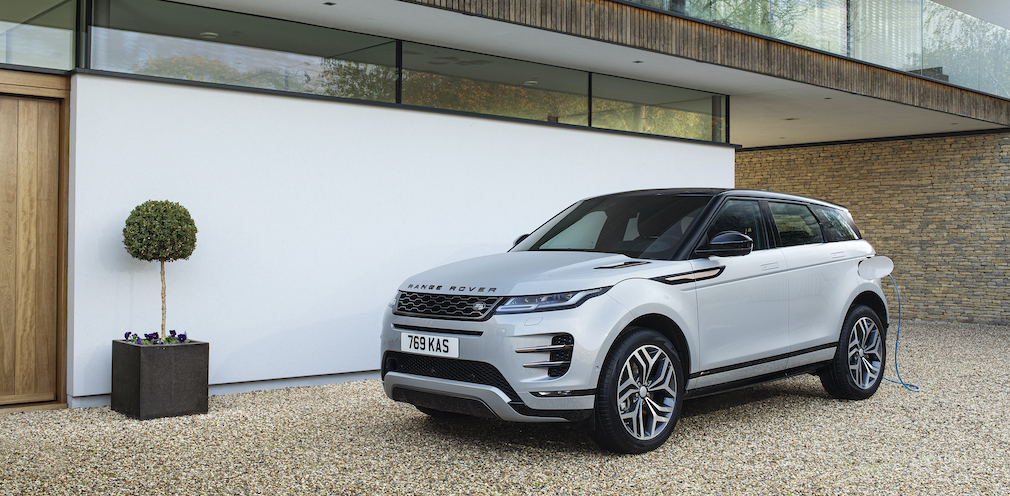

Land Rover has introduced the plug-in hybrid powertrains on the Range Rover Evoque and the Discovery Sport badged as the P300e. The new electrified range from the brand will help lower the carbon footprint as well as improve the fuel efficiency on the vehicles. The PHEV Discovery Sport claim to provide an electric-only range of 66 km and 32 g/km of carbon emissions.
Both the Plug-In Hybrid Range Rover Evoque and the Discovery Sport joins the existing 48-volt PHEV SUVs based on the PTA (Premium Transverse Architecture) platform designed to support electrification as well as retaining its off-road capabilities. The PHEV powertrain is also designed and manufactured in-house and is based on the Ingenium engine family.
Powering both the Range Rover Evoque and Discovery Sport is the P300e series 1.5-litre three-cylinder Ingenium petrol engine that produces 200 ps of power mated to a 109 ps electric motor integrated into the rear axle and coupled to a 15kWh lithium-ion battery pack located below the rear seats. The engine produces a total power output of 309 ps and 540 Nm of peak torque. The PHEV powertrain is matched to a new eight-speed automatic transmission which claims to be 5 kgs lighter than the 9-speed unit and has bee optimized to match the power and torque delivery of the three-cylinder engine.
The Range Rover Evoque delivers a 1.4L/100km combined fuel economy according to the WLTP and 32 g/km of combined WLTP carbon emissions with an EV only range of 66 km and a 0-100km/h in 6.4 seconds. While the larger 7-seater Discovery Sport delivers 1.6L/100km of combined fuel economy on the WLTP cycle, 36 g/km of combined WLTP carbon emissions and 62 km of EV only range and 0-100km/h in 6.6 seconds. Both SUVs can reach 135 kmph of top speed using only electric power.
The Range Rover Evoque and the Discovery Sport features three selectable driving modes – Hybrid Mode, EV mode and Save mode. In Hybrid mode which is the cars default mode, the car combines the petrol engine and electric motor and optimises route using GPS data to maximise efficiency. The EV mode is self-explanatory and in this mode, the vehicle runs only on electric power using the stored energy in its batteries producing zero emissions. The Save mode prioritises the petrol engine as the vehicles power sources and maintains the battery’s state of charge.
The powertrain also features advanced Electric Rear Axle Drive (ERAD) with a single-speed transmission and the system is integrated within the Integral Link rear suspension system. The electric motor is decoupled above the speed of 135 kmph to reduce drag and re-engages when speed falls below 135 kmph. The powertrain also employs compact high-voltage junction box (HVJB) that changes high-voltage current from the hybrid battery to low voltage to support the 12-volt network, a 7kW on-board charger, a Belt-integrated Starter Generator (BiSG) Inverter that charges the battery and brake-by-wire that replaces the conventional vacuum servo with a regenerative braking system.
The PHEV can be charged at home using a Mode 2 Home Charging Cable that takes 6hrs 42mins to fully charge the batteries, a Mode 3 Charging Cable for fast charging that allows 0-80 per cent charge in 1hr 24mins with the 7kW AC domestic wall box charger and 0-80 per cent in 30 minutes at a 32KW DC fast charging unit.
Land Rover has temporarily suspended the production on the SUVs due to the CoronaVirus/COVID-19 outbreak but the New Range Rover Evoque P300e PHEV and the Discovery Sport P300e PHEV are available to order in the international market with deliveries expected to commence from the Q3.